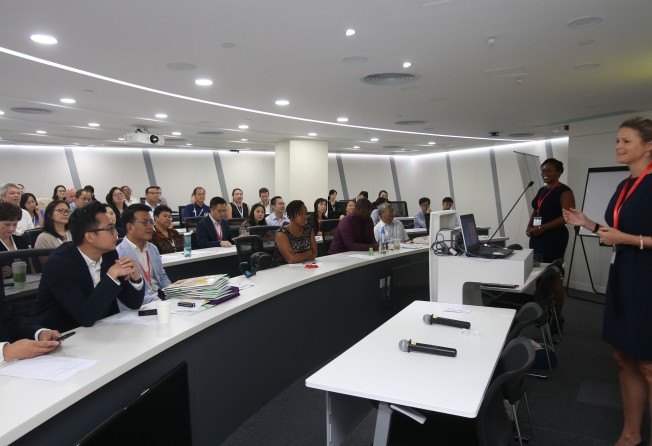Best of both worlds: local and international schools should combine efforts to improve inclusive education in Hong Kong
Schools, teachers, clinical practitioners and researchers are jigsaw pieces to be put together

Collaboration is the keyword when it comes to promoting inclusive education in Hong Kong, according to leading educators.
Speaking at a recent EdTalk forum on “Special Needs and Inclusive Education” hosted by the South China Morning Post, Professor Hue Ming-tak, head of the Department of Special Education and Counselling at The Education University of Hong Kong, was keen to start a productive dialogue on the topic, involving both local and international schools.
He pointed out that most local schools have different teams of teachers to support students with SEN (special educational needs). The teams may focus on, say, counselling or discipline and may also call on the expertise of social workers, educational psychologists and NGOs.
What Hue proposed was a “collaborative, evidence-based practice model”, so that schools, teachers, clinical service providers and researchers were better connected.
He noted that the Education Bureau’s guidebook on “Indicators for Inclusion” and the three-tier policy framework for SEN will continue to be important for schools, but there was still a need to “remove the barriers”.
For instance, in their own ways he saw the emphasis on academic achievements, an inflexible curriculum, limited resources and parental expectations as hurdles to be overcome.
In terms of teacher training, Hue has helped to introduce three-tier “BAT” courses covering basic, advanced and thematic approaches. The most advanced thematic course provides a platform for teachers to do their practicum and familiarises them with SEN materials being used in Hong Kong.
He added that, when planning the content and focus of training courses, it was essential to take note of the latest research. For instance, one project supported by the Integrated Centre for Wellbeing (I-WELL) makes use of eye trackers and electroencephalograms (EEGs) to collect data on students with autism spectrum disorder (ASD) and attention deficit and hyperactivity disorder (ADHD). Around 250 points detect brainwaves in each EEG.
“We show children a picture and, with the eye trackers, we trace the movement of their eyeballs, which we then use to plot a graph,’ said Hue, who specialises in school discipline and behaviour management. “This way, we can find out what they focus on.”
Belinda Greer, chief executive of the English Schools Foundation (ESF), indicated there were two ways of looking at education. The first way was to set up a system and structure where students have to fit in, and if they fail to do so, they will have to go somewhere else.
“Or, we can adopt a flexible system which can adapt to students,” she said.
To that end, the ESF introduced a “level of adjustments” framework which identifies ways to accommodate and adapt for students with disabilities. There are six levels: pupils in the first two usually have no trouble learning, but struggle with new concepts in certain subjects. They can be placed in mainstream classes if they have some additional support. Pupils in levels three and four, of whom the ESF currently has around 220, are placed in classes with ongoing learning support, while those in levels five and six often go to the Jockey Club Sarah Roe School, which also comes under the ESF.
Greer said this was underpinned by a five-year strategy, guided by the belief that learning was not about exam passes, but meeting the different needs of all children.
“You have to be interested in the children you work with on a day-to-day basis,” said Greer, who began teaching 35 years ago in the Middle East and, from day one, was determined to make a difference.
“As a principal, I did that with hundreds of students in my school. And when I worked as a Her Majesty’s Inspector in Scotland, I could make a difference on a national scale to the learning experiences of thousands of students.”
Clearly, though, the kind of support SEN children receive when they leave the school system is a very pertinent question. For this reason, the ESF has been expanding its career development service.
“We’re constantly looking for positive destinations for all our pupils, giving them experience of real-life work placements and celebrating the success they have there,” Greer said.